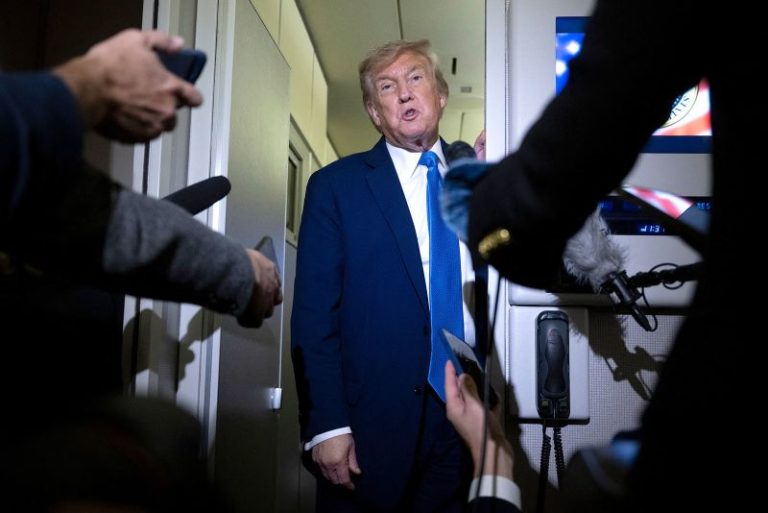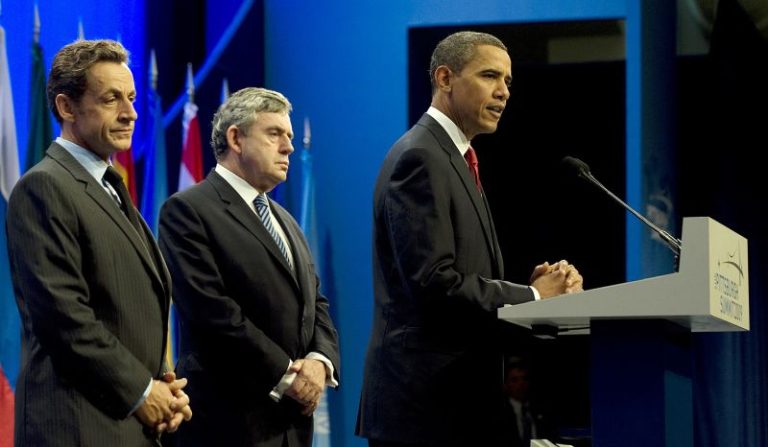A meticulously planned meal prepared in the home of an alleged killer is at the heart of a triple murder trial that’s nearing its dramatic conclusion in rural Australia.
For eight weeks, audiences have been glued to daily news reports and podcasts on an unusual case that alleges the world’s most toxic mushroom was used to kill.
A jury will soon decide if Erin Patterson, a 50-year-old mother of two, deliberately added death cap, or amanita phalloides, mushrooms to a Beef Wellington lunch she made for her estranged husband’s parents and his aunt and uncle in July 2023.
Three guests died within days of the meal, while a fourth recovered after spending several weeks in an induced coma. Patterson denies three counts of murder and one of attempted murder.
The prosecution and defense agree death cap mushrooms were in the meal.
The question is, how did they get there?
During eight days of testimony at Latrobe Valley Magistrates’ Court, Patterson acknowledged she repeatedly lied to police, dumped a dehydrator used to dry mushrooms, and reset her phone to delete images of mushrooms and the dehydrator from devices seized by investigators.
But she said she did not intend to kill.
Explaining her lies, Patterson told the jury she had a “stupid knee-jerk reaction to just dig deeper and keep lying.”
“I was just scared,” she said.
Defense lawyer Colin Mandy SC said Patterson accidentally added foraged mushrooms to the meal, along with ones she bought from an Asian grocer in Melbourne.
“What happened was a tragedy and a terrible accident,” he said.
In his closing arguments, Mandy said the prosecution’s case was based on “ridiculous” propositions, including that Patterson “would intend to kill these four people, blowing her entire life up in the process without a motive.”
The prosecution doesn’t need to prove a motive. But it does need to convince the 12-member jury beyond reasonable doubt that Patterson intended to kill the two elderly couples – including her children’s grandparents – and that she deliberately picked death cap mushrooms to do it.
A sumptuous lunch of Beef Wellington
On the morning of July 29, 2023, the smell of frying garlic and shallots likely filled Patterson’s kitchen in the small town of Leongatha in rural Victoria.
She was preparing a meal for two older married couples – Don and Gail Patterson and Heather and Ian Wilkinson.
Don and Gail were the parents of Erin’s estranged husband Simon. Heather and Ian were his aunt and uncle. Gail and Heather were sisters, and Ian the pastor of their local church.
The two couples lived close by in Korumburra, a country town home to fewer than 5,000 people in the scenic hills of southern Victoria.
Erin had asked Simon to come to the lunch, too, but he pulled out the night before, writing in a text that he felt “too uncomfortable” to attend.
Their relationship had become increasingly strained over finances and the children’s schooling, and he was living elsewhere, the court heard.
Erin told the jury she was “a bit hurt and a bit stressed” by Simon’s message, but the lunch went ahead the next day as planned. Patterson said she had started feeling left out of family gatherings and wanted to make more of an effort.
She said she chose to cook Beef Wellington because she remembered her mother preparing the meal for special occasions. It was Patterson’s first attempt at the dish, and she wanted to get it right.
To the garlic and shallots, she added store-bought button mushrooms that she had chopped up in a processor, before simmering the mixture on low for 45 minutes, she said.
The paste was used to coat the steaks, which she wrapped in pastry and baked in the oven.
The prosecution alleges she prepared poisoned parcels for her guests and reserved an untainted one for herself. Patterson insists she made just one batch.
An unexpected invitation
In the witness box, Ian Wilkinson, the only surviving lunch guest, told the court he’d been surprised but “very happy” to accept Patterson’s lunch invitation.
The 71-year-old said his relationship with Erin was “friendly” and “amicable.” He’d been a guest at her wedding in 2007 but considered her more of an acquaintance than a close friend.
During the Covid-19 pandemic, Patterson helped to broadcast his church services on YouTube, and she attended his sermons, on and off, he said.
“She just seemed like an ordinary person,” he told the jury.
Wilkinson said he didn’t really understand why they’d been invited to lunch, but it became apparent when they’d finished eating the meal of Beef Wellington, beans and mash.
“Erin announced that she had cancer,” Wilkinson told the jury. “She said that she was very concerned because she believed it was very serious, life-threatening.”
Wilkinson said Patterson asked for advice about how to tell her children about, in her words, “the threat to my life.”
Wilkinson said Don Patterson offered some advice about being honest, but the conversation ended after about 10 minutes when one of the lunch guests noticed the children returning. Wilkinson suggested a quick prayer.
“I prayed a prayer asking God’s blessing on Erin, that she would get the treatment that she needed, that the kids would be okay, that she’d have wisdom in how she told the kids,” he testified.
Patterson had never been diagnosed with cancer, the court heard.
Prosecutor Nanette Rogers SC put to Patterson on the stand: “I suggest that you never thought you would have to account for this lie about having cancer because you thought that the lunch guests would die.”
“That’s not true,” Patterson replied.
Patterson said she didn’t explicitly tell her guests that she had cancer, but acknowledged she allowed them to believe she may have a serious medical issue because she was exploring possible surgery for another problem – one that she was too embarrassed to reveal.
The secret Patterson hid for years
Patterson said she’d always been self-conscious about her weight.
As a child, her mother weighed her every week to make sure she wasn’t getting too heavy. “I never had a good relationship with food,” she said.
Since her 20s, Patterson said she would binge and purge. Around the time of the fatal lunch in July 2023, she said she was doing it two to three times a week, maybe more.
“Who knew about it?” her defense lawyer Mandy asked Patterson. “Nobody,” she said.
Patterson told the jury she had resolved to do something about her weight “once and for all,” and booked a consultation for potential gastric bypass surgery with a clinic in Melbourne in September. Evidence showed an appointment had been made.
“I didn’t want to tell anybody what I was going to have done,” Patterson told the court. “I was really embarrassed about it, so I thought perhaps letting (her in-laws) believe I had some serious issue that needed treatment might mean they’d be able to help me with the logistics around the kids,” she said.
Instead, it was her lunch guests who needed serious medical attention.
Hours after the meal Saturday, they started to become ill and went to hospital the next morning with vomiting and diarrhea, the court heard.
By Monday morning, their condition had deteriorated, and doctors arranged for their transfer to Austin Hospital, a larger facility that provides specialist liver care.
Death cap mushrooms contain toxins that stop the production of protein in liver cells and the cells begin to die, leading to possible liver failure and death.
Treatments are available, but none are 100% effective, said Dr Stephen Warrillow, director of Austin Health’s intensive care unit.
“Once the amanita poison is within the body, unfortunately the body tends to recycle it internally,” said Warrillow, who treated all four lunch guests.
Gail Patterson, 70, and Heather Wilkinson, 66, were considered too weak for a liver transplant and died on August 4 from multiple organ failure, he said. Don Patterson, 70, received a transplant but died on August 5.
Ian Wilkinson was in an induced coma on life support but responded to treatment and was eventually discharged in September.
“We thought he was going to die,” said Warrillow. “He was very close.”
Foraged mushrooms
Patterson told the court she took up foraging for mushrooms in early 2020, during the Covid-19 pandemic, when she would take long walks with her children in the countryside.
Native to Europe, death cap mushrooms arrived in Australia by accident, expert mycologist Tom May told the court. They grow near oak trees and only appear above ground for a couple of weeks before decaying, he said.
Most sightings in Victoria are in April and May, and some people upload photos of them to the citizen science website iNaturalist, May added.
Christine McKenzie, a retired former poisons information specialist at the Victorian Poisons Information Centre, told the court she spotted death cap mushrooms in Loch – about 28 kilometers (17 miles) from Patterson’s home – and uploaded them to iNaturalist on April 18, 2023.
She’d been out walking with her husband, grandson and dog, and said she disposed of the mushrooms to avoid accidental poisoning but conceded that more could grow.
Citing analysis of cellphone tower connections, the prosecution alleges it’s possible Patterson saw McKenzie’s post and went to the same location on April 28 to pick the mushrooms.
Store records show that within two hours of the alleged visit, Patterson bought a dehydrator, which the prosecution said she used to dry the toxic mushrooms.
Patterson concedes she bought the dehydrator, saying there is a “very small season” of availability for wild mushrooms and she wanted to preserve them, and “a whole range of things.” She denied foraging for mushrooms in Loch.
May, the fungus expert, said that on May 21, 2023, he saw death cap mushrooms growing in Outtrim, about 19 kilometers (11 miles) from Leongatha, and posted the sighting to iNaturalist.
“I don’t think I typed the street name in, but I put a very precise latitude-longitude geocode with the observation,” he said.
Prosecutors said analysis of Patterson’s cellphone movements placed her in the Outtrim region on May 22, when they say it’s possible Patterson picked the mushrooms.
The defense said broader analysis of her phone records suggests it’s possible her cellphone picked up different base-station signals within her own home. “These records are consistent with the accused never leaving the house,” said Mandy.
Patterson denied ever foraging for mushrooms in Outtrim, and said she couldn’t remember ever visiting the iNaturalist website and did not see the reported sightings.
Patterson’s explanation
On August 1, three days after the lunch, Patterson was in hospital, having been convinced by doctors to stay after earlier discharging herself against their advice.
They had impressed on her the importance of being treated for death cap mushroom poisoning because symptoms are known to worsen with time.
Her children should be there too, they said, because she said they had eaten some of the leftovers on Sunday night, albeit with the mushrooms and pastry scraped off.
It was in hospital on August 1 that Patterson said she had a conversation with Simon, her estranged husband, that made her start thinking about how toxic mushrooms had come to be in the meal.
Patterson said she told Simon that she had dried mushrooms in a dehydrator, and he replied: “Is that how you poisoned my parents, using that dehydrator?”
Erin Patterson told the jury that Simon’s comment had caused her to do “a lot of thinking about a lot of things.”
“It got me thinking about all the times that I’d used (the dehydrator), and how I had dried foraged mushrooms in it weeks earlier, and I was starting to think, what if they’d gone in the container with the Chinese mushrooms? Maybe, maybe that had happened.”
In his evidence, Simon Patterson denied ever suggesting to Erin that she poisoned his parents with the dehydrator. “I did not say that to Erin,” he said.
The next day, on August 2, Patterson dropped her children at school, then returned home, retrieved the dehydrator, and dumped it at a waste and recycling center. She was seen on closed-circuit television.
Asked about her actions, Patterson said child protection officers were due to visit her house that afternoon, and she was “scared” about having a conversation about the meal and the dehydrator.
“I was scared that they would blame me for it … for making everyone sick,” she said. “I was scared they’d remove the children,” she added.
Analysis showed remnants of death cap mushrooms in the dehydrator, the prosecution said.
Patterson acknowledged that when she dumped the dehydrator, she knew that doctors suspected death cap mushroom poisoning. She also accepted that she did not tell medical staff that foraged mushrooms may have been in the meal.
Patterson said she had diarrhea after the lunch but brushed it off as a bout of gastro. She was not as ill as her lunch guests – and during her testimony, she offered a reason why.
The orange cake
Gail Patterson had brought an orange cake to lunch to share, and Erin Patterson testified that after the guests left, she found herself eating slice, after slice, after slice.
After consuming about two-thirds of the cake, she made herself throw up, she told the court.
In her closing address, prosecutor Rogers said no evidence was offered suggesting expelling tainted food can lessen the impact of amanita toxin.
To the jury, she said, “we suggest (you) reject her evidence about vomiting after the meal as a lie.”
In his closing argument, defense lawyer Mandy asked why, if it was a lie, Patterson hadn’t been more precise about when she vomited? “She surely would have said to you that it happened as soon as the guests left, because the earlier the better,” he said to the jury.
During her testimony, Patterson also offered an explanation about how the death cap mushrooms came to be in the meal.
Patterson said she dried store-bought and foraged mushrooms in her dehydrator and would store them in plastic containers in the pantry. If one box was full, she’d start another, she said.
Patterson said that, back in April, she had bought dried mushrooms from an Asian grocer in Melbourne, but didn’t use them at the time because they were “too pungent.” Instead, she stored them in a plastic container in the pantry.
Mandy asked her: “Do you have a memory of putting wild mushrooms that you dehydrated in May or June of 2023 into a container which already contained other dried mushrooms?”
“Yes, I did do that,” Patterson said.
Patterson said that, on July 29, as she cooked the lunch, she tasted the mixture of garlic, shallots and mushrooms and decided it was “a little bland,” so she added dried mushrooms that had been stored in a plastic container in her pantry.
Mandy asked her what she had believed to be in the plastic container in the pantry.
“I believed it was just the mushrooms that I bought in Melbourne,” Patterson said.
“And now, what do you think might have been in that tub?” Mandy asked.
“Now I think that there was a possibility that there were foraged ones in there as well,” she said.
Closing arguments
The Crown contends there was no Asian grocer and that Patterson faked illness after the meal to suggest that she, too, had suffered symptoms of death cap mushroom poisoning.
Rogers alleged Patterson initially left hospital because she knew that neither she, nor her children, had consumed the poisoned lunch.
When Patterson was examined on Monday, July 31, a doctor found “no clinical or biochemical evidence of amanita poisoning or any other toxicological substance” in her system, Rogers said.
“By that stage, all four of the lunch guests were in induced comas,” she added.
Of allegations Patterson faked her illness following the lunch, Mandy said it made no sense that she’d refuse medical help and discharge herself from hospital early, if she was pretending to have eaten poisoned mushrooms.
“If you’re pretending to be sick, you’re going to be saying to the medical staff, ‘Hook me up, pump me full of drugs, I am very, very sick. Please,’” Mandy said.
Furthermore, he said it was possible to have milder symptoms of amanita poisoning, depending on how much was consumed, according to expert evidence that said weight and age were also factors.
Under cross-examination, Rogers put it to Patterson that she had two faces: A public one where she appeared to have a good relationship with her in-laws, and a private one expressed in her Facebook chat groups, where she vented to friends that she’d had enough of the family.
In messages to Facebook friends read out in court, Patterson expressed her frustration that her in-laws would not get involved in her dispute with Simon over child support.
“I’m sick of this shit I want nothing to do with them,” she wrote in December 2022. “I thought his parents would want him to do the right thing but it seems their concern about not wanting to feel uncomfortable and not wanting to get involved in their sons personal matters are overriding that so f*** em.”
And another message read: “This family I swear to f***ing god.”
Asked by her defense counsel Mandy how she felt about that statement now, an emotional Patterson said: “I wish I’d never said it … I feel ashamed for saying it, and I wish the family didn’t have to hear that I said that.
“They didn’t deserve it.”
In his closing arguments, Mandy characterized the terse exchanges as signs of a “brief spat” that was “resolved amicably.”
Mandy said there was no motive for triple murder, and that there were in fact several reasons why Patterson would not want to kill her guests. She had no money issues, lived in a big house, and had almost full-time custody of her two young children, who were very close to their grandparents, he said.
The defense argues that Patterson unknowingly picked death cap mushrooms, dried them in her dehydrator and stored them in the pantry, until the day she inadvertently threw them into the pan.
Mandy said some of the “ridiculous” propositions included that Patterson planned to kill four lunch guests and “thought it would all be passed off as some kind of strange case of gastro, where everyone died, except her.”
To the prosecution’s allegation that Patterson had “blitzed” the death cap mushrooms into a powder to hide them in the meal, he said: “Why would you need to hide mushrooms in a mushroom paste? It doesn’t make any sense.”
The moment in hospital when Erin said Simon asked her if she had used the dehydrator to poison his parents was “when the wheels start turning,” Mandy said.
“She starts panicking and she starts lying from that point,” he said.
“What followed from this moment were actions taken to conceal … the fact that foraged mushrooms went into the meal because she feared if that was found out, she would be held responsible.”
However, Rogers said Patterson had complete control over events and used it to “devastating effect.”
The cook had “told too many lies,” said Rogers, as she urged the jury to reject Patterson’s claims that she didn’t know the meal was laced with toxins.
“We say there is no reasonable alternative explanation for what happened to the lunch guests, other than the accused deliberately sourced death cap mushrooms and deliberately included them in the meal she served them, with an intention to kill them,” Rogers said.
The jury is expected to retire to consider their verdict this week – their decision must be unanimous.










